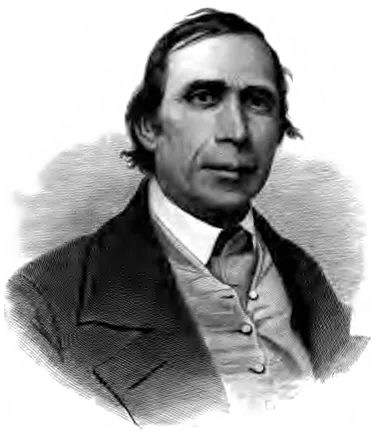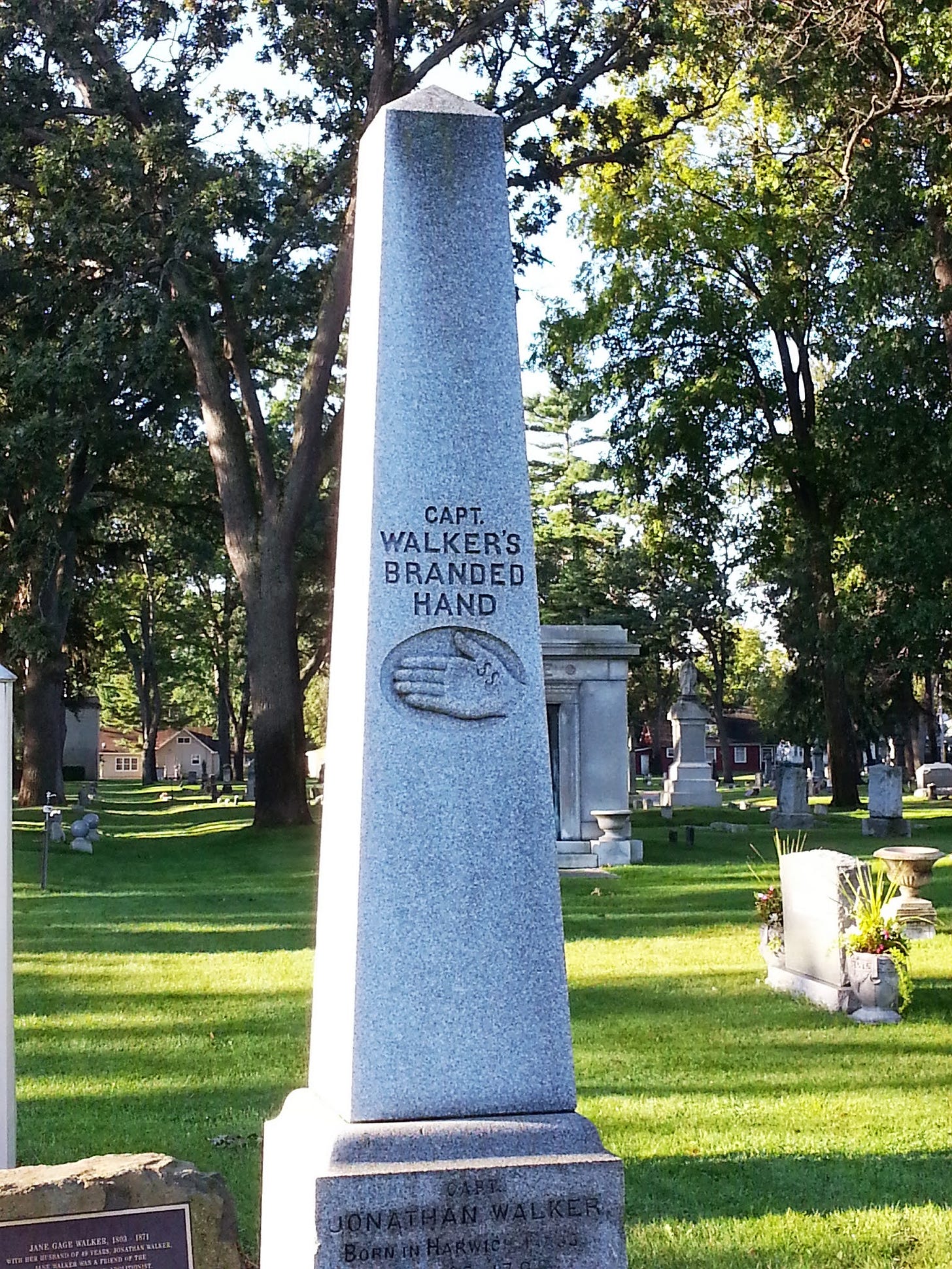A hot iron branded Jonathan Walker as 'Slave Stealer'
A Harwich sea captain's seared palm inspired the nation
Jonathan W. Walker was one of many Cape Cod men whose early times were all about the sea, born in 1799, Harwich captain of a fishing vessel. But then his life took a turn that led to infamy:
He became “the man with the branded hand,” an anti-slavery crusader whose handshake bore proof of his actions and beliefs. Branded by a United States marshal after caught at sea trying to smuggle slaves, the scalded letters “S S” were meant to stand for “Slave Stealer.”
Walker’s supporters turned the acronym into “Slave Savior.”
Walker became an ardent abolitionist in his 30s, his pivotal moment arriving a decade later, 1844. He employed his maritime skills to try to sail seven escaped slaves from Florida to freedom in the West Indies, but became sick during the voyage, incapacitated. No one else onboard was seaworthy. His vessel was “rescued” by a pro-slavery crew aboard a sloop. Slaves returned, he was dragged to prison in Florida.
Tied to a pillory, sentenced to a year in solitary confinement, chained to the floor, Walker also was fined $600 — and in a public display his right hand was branded with a red-hot iron.
Abolitionists eventually paid for his release. He became a hero north of the Mason-Dixon line and out West, touring for months at a time expounding on slavery’s evils as people gathered to see “The Man with the Branded Hand.”
Proof of commitment, offered by every handshake, inspired John Greenleaf Whittier to write a poem that joined rallying cries of abolitionists. "The Branded Hand" was part of a collection published in 1846. Here are two of the three closing stanzas:
Then lift that manly right-hand, bold ploughman of the wave!
Its branded palm shall prophesy, "Salvation to the Slave!"
Hold up its fire-wrought language, that whose who read may feel
His heart swell strong within him, his sinews change to steel.
…
And the masters of the slave-land shall tremble at that sign,
When it points its finger Southward along the Puritan line
Can the craft of State avail them? Can a Christless church withstand,
In the van of Freedom's onset, the coming of that hand?
While Walker had family on Cape Cod, he never returned to live. He settled in Wisconsin, then Michigan, joining abolitionists Sojourner Truth and Stephen Foster to organize anti-slavery efforts. He had other passionate beliefs, including a hatred of tobacco; in his will, he left more to his daughters than sons because the sons smoked.
He died on May 1, 1878, in Michigan. Above his grave a Masonic obelisk offers a single, centered image seen by 6000 funeral attendees, many more since:
In hometown Harwich (as noted at the base) another remembrance was installed in 1994, the town’s 300th anniversary, on historical society grounds, Parallel Street:
Haven’t subscribed yet? Paid subscribers make it possible to see a Voice and support good reporting, strong perspectives, unique Cape Cod takes (including remarkable history) every week.
So please, subscribe:
https://sethrolbein.substack.com/welcome
And if you’re into Instagram, and want to share the work that way, here you go:








Thank you, Seth, for illuminating the life of local citizen Jonathan Walker. I like to have destinations—culinary, cultural, or historical—on my bike rides from Brewster. Soon I will go in search of this plaque. Perhaps I will combine it with my annual pilgrimage to the Mount Hope Cemetery to see the gravesite of Tip O’Neill.